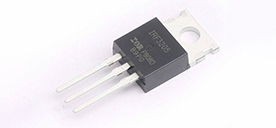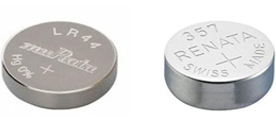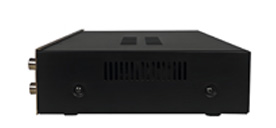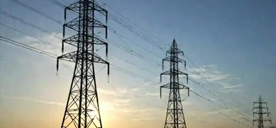Internet of Things: Connecting everything and creating infinite possibilities
2023/11/16 10:32:57
Views:
The Internet of Things (IoT), or "Internet of Things", is a revolutionary technology that collects information in real time through various information sensors, radio frequency identification technology, global positioning systems, infrared sensors, laser scanners and other devices and technologies. Data of various objects or processes that need to be monitored, connected, and interacted with. These data cover information in multiple fields such as sound, light, temperature, electricity, mechanical movement, chemical composition, biological characteristics, and location. With the help of various network access methods, the Internet of Things connects different things to each other, realizing extensive interconnection between things and things and between things and people, and further realizing intelligent perception, identification and management of items and processes.
In recent years, with the rapid development of the Internet of Things, especially the popularization of intelligence, it has become a representative of the new generation of information technology. It highly integrates various technologies and has the characteristics of strong penetration, great promotion effect and significant comprehensive benefits. It has played a positive role in promoting the transformation of production methods, lifestyles and social management methods into intelligent, sophisticated and networked directions. The development of the Internet of Things has given rise to a large number of new technologies, new products, new applications and new business models. It has improved the level of social management and public services, promoted the upgrading of traditional industries, and become a new economic growth point.
The development of the Internet has promoted connections between people, while the Internet of Things focuses on realizing connections between items and emphasizes that this connection itself creates value. For example, consider POS machines, which enable mobile payments by utilizing the networking functions provided by IoT cards, thereby subverting traditional payment methods, while improving merchant efficiency and reducing errors in the checkout and change process. . IoT cards are also widely used in equipment in various industries, giving more capabilities to equipment in these industries, thereby benefiting society.
The Industrial Internet of Things plays a vital role in smart manufacturing and is an indispensable core technology for manufacturing companies to achieve digital transformation. Using IoT technology, companies can efficiently collect and integrate multiple data types, provide customers with value-added services such as remote fault diagnosis and predictive maintenance, and achieve new revenue growth through deep mining of data value, thereby transforming into a comprehensive service provider. The application of the Internet of Things in the manufacturing industry is mainly reflected in digital and intelligent factory transformation, including factory machinery and equipment monitoring and environmental monitoring. The future goal is to improve the digitalization level of industrial equipment and enhance the collaboration capabilities between equipment.
Smart home is an important area of intelligent life, covering many aspects of home appliances and home equipment. Home equipment such as air conditioners and TVs already have remote control functions, and the goal of smart homes is to connect these independent home equipment through IoT gateway technology and other means to achieve the sharing of resources and information.
Smart agriculture applies Internet of Things technology to the fields of agricultural planting and livestock breeding. Technologies such as sensors, cameras and satellites have promoted the digital development of crops and machinery. Modern information technology such as the Internet of Things, artificial intelligence and big data are deeply integrated with agriculture, realizing information perception, precise management and intelligent control of the entire agricultural production process, thus improving the efficiency and sustainability of agriculture. Agriculture can be divided into two aspects: planting and animal husbandry.
Smart environmental protection collects pollution sources, environmental quality, ecology and other information in real time through the comprehensive application of sensors, global positioning systems, video surveillance, satellite remote sensing, infrared detection, radio frequency identification and other technologies and equipment, building an all-round, multi-level, full-coverage ecology Environmental detection network. This technology promotes the efficient and accurate transmission of environmental information. Through the construction of large-scale data resource centers and integrated service platforms, it comprehensively supports the intelligence of environmental protection businesses such as pollution source monitoring, environmental quality testing, supervision and law enforcement, and management decision-making. This technology helps reduce pollution levels, prevent environmental risks, cultivate environmental protection industries, and promote the construction of ecological civilization and the scientific development of environmental protection undertakings.
Smart logistics is supported by information technology and realizes system awareness in all aspects of logistics, such as transportation, warehousing, packaging, loading and unloading, circulation processing, distribution and information services. Smart logistics integrates multiple service functions and emphasizes the efficient, fast and smooth operation of information and material flows, thereby reducing social costs, improving production efficiency, and integrating social resources.
To sum up, the Internet of Things has had a profound impact in various fields and promoted the development and progress of society. It not only changes the way we live and work, but also brings a wide range of opportunities and challenges to various fields. With the continuous advancement of technology and the expansion of applications, the Internet of Things will continue to play an important role in promoting social innovation and development.
The popularity and adoption of IoT is accelerating, and we can dive deeper into some of the future trends and potential of IoT. For example, with the popularization of 5G technology, the communication speed between IoT devices will be greatly improved, thus supporting more real-time data exchange and remote operations. With the continuous advancement of artificial intelligence, IoT devices will become more proficient in understanding and meeting human needs, providing users with more personalized and intelligent services.
In addition, data privacy and security are important issues that need to be solved during the development of the Internet of Things. As the number of IoT devices increases, data collection and transmission become more complex, so effective measures need to be taken to protect user privacy and data security to build user trust.
In addition, the Internet of Things can also play a role in more fields, such as smart cities, smart healthcare, smart transportation, etc. Developments in these areas will further promote the application and innovation of the Internet of Things.
In short, the Internet of Things is a technology with huge potential. It is constantly changing the way we live and work, and brings new opportunities to the development of society. With the continuous advancement of technology and the expansion of applications, the Internet of Things will continue to provide impetus for innovation and development in various fields. At the same time, we also need to continue to pay attention to important issues such as data privacy and security to ensure its sustainable and healthy development.
In recent years, with the rapid development of the Internet of Things, especially the popularization of intelligence, it has become a representative of the new generation of information technology. It highly integrates various technologies and has the characteristics of strong penetration, great promotion effect and significant comprehensive benefits. It has played a positive role in promoting the transformation of production methods, lifestyles and social management methods into intelligent, sophisticated and networked directions. The development of the Internet of Things has given rise to a large number of new technologies, new products, new applications and new business models. It has improved the level of social management and public services, promoted the upgrading of traditional industries, and become a new economic growth point.
The development of the Internet has promoted connections between people, while the Internet of Things focuses on realizing connections between items and emphasizes that this connection itself creates value. For example, consider POS machines, which enable mobile payments by utilizing the networking functions provided by IoT cards, thereby subverting traditional payment methods, while improving merchant efficiency and reducing errors in the checkout and change process. . IoT cards are also widely used in equipment in various industries, giving more capabilities to equipment in these industries, thereby benefiting society.
The Industrial Internet of Things plays a vital role in smart manufacturing and is an indispensable core technology for manufacturing companies to achieve digital transformation. Using IoT technology, companies can efficiently collect and integrate multiple data types, provide customers with value-added services such as remote fault diagnosis and predictive maintenance, and achieve new revenue growth through deep mining of data value, thereby transforming into a comprehensive service provider. The application of the Internet of Things in the manufacturing industry is mainly reflected in digital and intelligent factory transformation, including factory machinery and equipment monitoring and environmental monitoring. The future goal is to improve the digitalization level of industrial equipment and enhance the collaboration capabilities between equipment.
Smart home is an important area of intelligent life, covering many aspects of home appliances and home equipment. Home equipment such as air conditioners and TVs already have remote control functions, and the goal of smart homes is to connect these independent home equipment through IoT gateway technology and other means to achieve the sharing of resources and information.
Smart agriculture applies Internet of Things technology to the fields of agricultural planting and livestock breeding. Technologies such as sensors, cameras and satellites have promoted the digital development of crops and machinery. Modern information technology such as the Internet of Things, artificial intelligence and big data are deeply integrated with agriculture, realizing information perception, precise management and intelligent control of the entire agricultural production process, thus improving the efficiency and sustainability of agriculture. Agriculture can be divided into two aspects: planting and animal husbandry.
Smart environmental protection collects pollution sources, environmental quality, ecology and other information in real time through the comprehensive application of sensors, global positioning systems, video surveillance, satellite remote sensing, infrared detection, radio frequency identification and other technologies and equipment, building an all-round, multi-level, full-coverage ecology Environmental detection network. This technology promotes the efficient and accurate transmission of environmental information. Through the construction of large-scale data resource centers and integrated service platforms, it comprehensively supports the intelligence of environmental protection businesses such as pollution source monitoring, environmental quality testing, supervision and law enforcement, and management decision-making. This technology helps reduce pollution levels, prevent environmental risks, cultivate environmental protection industries, and promote the construction of ecological civilization and the scientific development of environmental protection undertakings.
Smart logistics is supported by information technology and realizes system awareness in all aspects of logistics, such as transportation, warehousing, packaging, loading and unloading, circulation processing, distribution and information services. Smart logistics integrates multiple service functions and emphasizes the efficient, fast and smooth operation of information and material flows, thereby reducing social costs, improving production efficiency, and integrating social resources.
To sum up, the Internet of Things has had a profound impact in various fields and promoted the development and progress of society. It not only changes the way we live and work, but also brings a wide range of opportunities and challenges to various fields. With the continuous advancement of technology and the expansion of applications, the Internet of Things will continue to play an important role in promoting social innovation and development.
The popularity and adoption of IoT is accelerating, and we can dive deeper into some of the future trends and potential of IoT. For example, with the popularization of 5G technology, the communication speed between IoT devices will be greatly improved, thus supporting more real-time data exchange and remote operations. With the continuous advancement of artificial intelligence, IoT devices will become more proficient in understanding and meeting human needs, providing users with more personalized and intelligent services.
In addition, data privacy and security are important issues that need to be solved during the development of the Internet of Things. As the number of IoT devices increases, data collection and transmission become more complex, so effective measures need to be taken to protect user privacy and data security to build user trust.
In addition, the Internet of Things can also play a role in more fields, such as smart cities, smart healthcare, smart transportation, etc. Developments in these areas will further promote the application and innovation of the Internet of Things.
In short, the Internet of Things is a technology with huge potential. It is constantly changing the way we live and work, and brings new opportunities to the development of society. With the continuous advancement of technology and the expansion of applications, the Internet of Things will continue to provide impetus for innovation and development in various fields. At the same time, we also need to continue to pay attention to important issues such as data privacy and security to ensure its sustainable and healthy development.
Related Information
-
-
Phone
+86 135 3401 3447 -
Whatsapp





